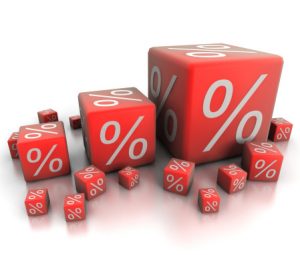 Blackrock’s iShares unit announced this week a new lineup of low-fee European ETFs. With the average expense ratio among these new ETFs at 17 basis points (.17 percent), it’s ETF investors who stand to gain the most. Compare that to separately managed account and mutual fund expense ratios that average around 100bps. Not even close.
Blackrock’s iShares unit announced this week a new lineup of low-fee European ETFs. With the average expense ratio among these new ETFs at 17 basis points (.17 percent), it’s ETF investors who stand to gain the most. Compare that to separately managed account and mutual fund expense ratios that average around 100bps. Not even close.
Fund expense ratios are by no means the only factor to consider when choosing an ETF. However, you can be certain that for any given return, the more you spend to earn it, the less of it you will keep. In short, fees matter. In indexing investing, fees are especially important. If two ETFs both track the Dow Jones Industrial Average but one has a much smaller expense burden, that ETF delivers more of the index’s performance to investors.
We like this war
Fee competition is fierce among fund providers. Vanguard in particular is famous for leading the downward pressure on fees. It has an important advantage in doing so: Vanguard the management company is owned by the Vanguard funds, not by outside shareholders. The company doesn’t need to scrape off extra profits to boost its stock price or pay dividends. It only charges management fees needed to run the company, pay salaries, conduct research, etc. Investors benefit greatly from this completely unique structure.
The Vanguard effect
So far this year, Vanguard has announced fee reductions to 24 of its ETFs. Eric Balchunas, lead Bloomberg ETF analyst, notes that “If Vanguard hasn’t created an ETF in a particular space, the fee for that product is likely to be much higher.” While Vanguard doesn’t hold the lowest fee in every ETF category, the firm undoubtedly creates significant pressure among all ETF providers to go low.
An example
ETFs tracking the emerging market BRIC countries (Brazil, Russia, India, China) are sponsored by iShares (BKF), Guggenheim (EEB), and SPDR (BIK). The average expense ratio among these ETFs is 60bps. Vanguard does not have a BRIC-specific fund. But it does have VWO, the 4th largest ETF by assets with $45 billion. This fund, which tracks the entire emerging market sector, has an expense ratio of just 15bps, recently reduced from an already low 18bps. To stay competitive, the iShares IEMG emerging markets fund has an expense ratio of 18bps. When Vanguard’s in the game, everyone has to play harder.
How to
If you’ve owned ETFs for a while now, you may want to consider swapping older more expensive ETFs for newer low cost alternatives. We’re happy to review your holdings for opportunities. Click here to request a personalized analysis by John or me.
Max Osbon – mosbon@osboncapital.com
Weekly Articles by Osbon Capital Management:
"*" indicates required fields
